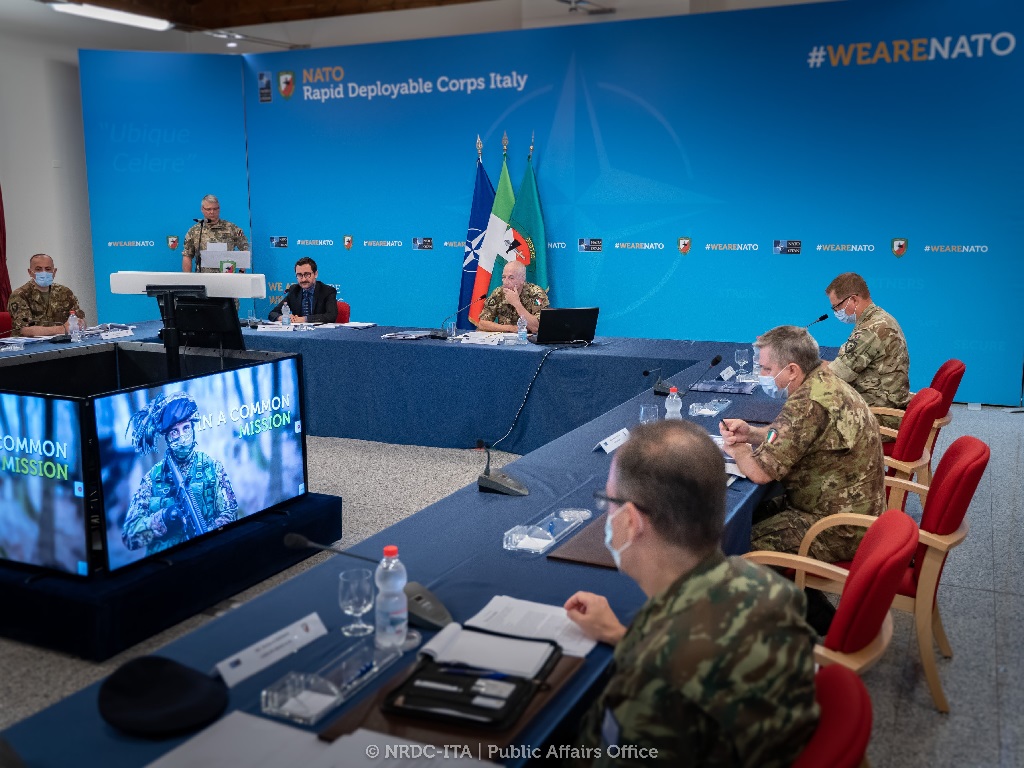
A gathering of experts to discuss NATO Strategic Direction South
Milan, June 22, 2021. Today, as part of scheduled activities aimed at the professional growth of the NRDC-ITA staff, the Eagle Eye Webinar 21 was held in Milan.
The annual conference was divided in three panels with distinguished briefers. The aim was to share knowledge and encourage a thorough discussion on the NATO Strategic Direction South with the insights of civilian and academics representatives in addition to different Commanders.
Following the opening remarks by Major General Fabio Polli, the NRDC-ITA Chief of Staff, Professor Alessandro Marrone, Istituto Affari Internazionali, introduced the topic and moderated the panels. The first included engaging presentations by Major General Francesco Diella, Director of the Cooperative Direction at the International Military Staff NATO HQ and Professor Chloe Berger, NATO Defence College, focusing on NATO approach on strategic partnership and projecting stability.
The second panel, with special attention dedicated to the Chinese and Russian approach, included lectures by Brigadier General Davide Re, Director of the NATO Strategic Direction South Hub and Professor Kleanthis Kyriakidis, American University in the Emirates.
The final panel focused on International perceptions and included a presentation provided by Mr Robin Mossinkof, OSCE Conflict Prevention Center.
The post-presentation discussion stressed the importance of international organizations engagement in the MENA (Middle East and North Africa) region, as well as their crucial role in the conflict prevention and crisis management. Additionally, the discussions highlighted the impact of the nation’s operating in the area and the necessary actions to minimize potential risks to stability.
The webinar, included in the calendar for the 20th anniversary of the foundation of the multinational headquarters, was an additional opportunity for the NRDC-ITA community, with guests that provided diverse perspectives, to learn from each other by assessing possible policy response frameworks to support security and stability solutions.